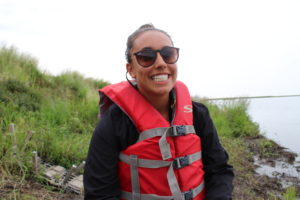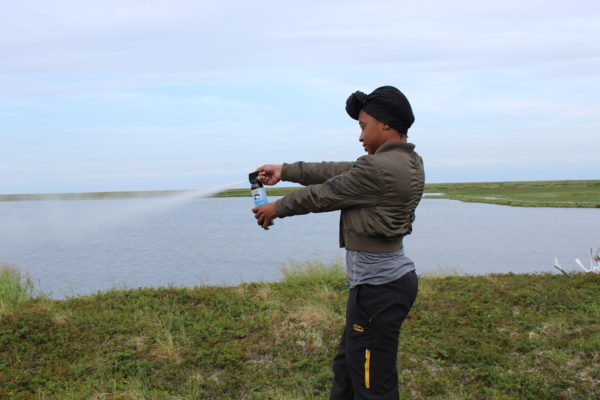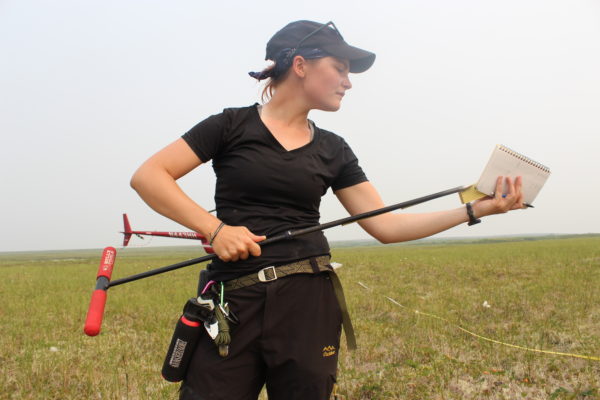 I was initially drawn to the Polaris project because of its focus on conducting field-based research about climate change in Alaska. The location, the YK Delta was the most important factor in my decision, since I am Alaska Native and my identity has always been the most influential factor in my decision to pursue a career in the sciences. I am incredibly concerned with how climate change will negatively influence the lives of the indigenous people of Alaska, and hope that through conducting scientific research I can make a difference.
I was initially drawn to the Polaris project because of its focus on conducting field-based research about climate change in Alaska. The location, the YK Delta was the most important factor in my decision, since I am Alaska Native and my identity has always been the most influential factor in my decision to pursue a career in the sciences. I am incredibly concerned with how climate change will negatively influence the lives of the indigenous people of Alaska, and hope that through conducting scientific research I can make a difference.
Upon arriving in Anchorage, I was initially impressed with the discussions facilitated by the project with local community members. These conversations opened our eyes to some of the concerns indigenous people have about how they have experienced the climate changing. At the core of each of these concerns, was always salmon. In Alaska Native culture, everything comes back to salmon. And with rising global temperatures, acidifying oceans, and eroding rivers, salmon populations are likely to change.
Once we arrived at our base camp near landing lake, I reflected on the expressed concerns of the community members. Unfortunately, our campsite is not set up in an area where salmon run through, thus a project focused directly on salmon was not possible. There are, however, many lakes surrounding the camp site of varying sizes. While I could not directly study how salmon populations may be influenced by climate change, I realized I could instead study other species, specifically phytoplankton and zooplankton. Considering zooplankton are a staple in salmon diet, plankton population viability in areas heavily influenced by the effect of climate change could have indirect implications for salmon populations. From this realization, I developed my research project focusing on analyzing the zooplankton, phytoplankton and water chemistry of lakes in burned and unburned areas of the surrounding tundra.
After two weeks of fieldwork, I am incredibly grateful for the experiences I have gained during this project! Designing and developing an entire research project in two weeks certainly had its challenges, but I am very proud of how the research ended up.
– Ellen Bradley is a student at Gonzaga University



